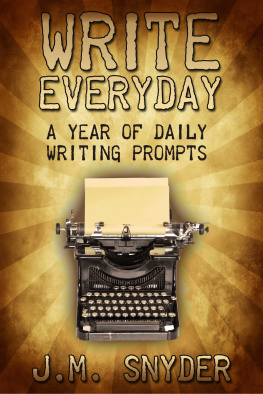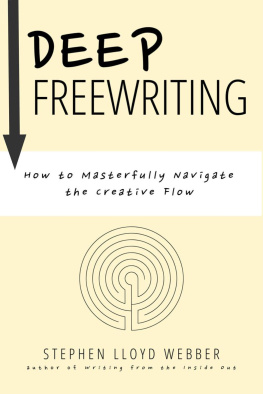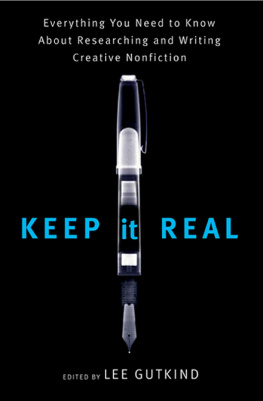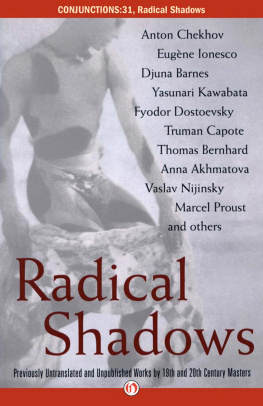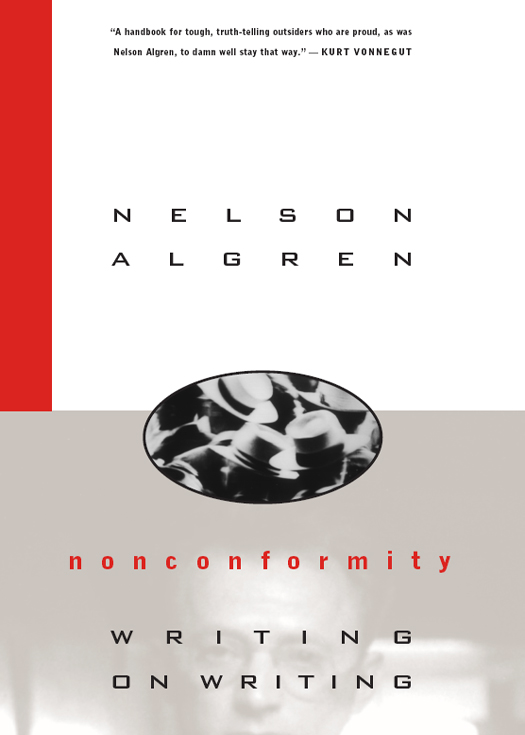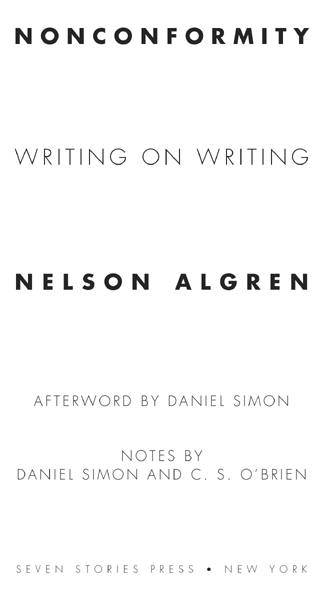First Trade Paperback Edition, January 1998
All rights reserved
Copyright 1996 by The Estate of Nelson Algren
Afterword 1996 by Daniel M. Simon
Except as permitted under the Copyright Act of 1976, no part of this publication may be reproduced or distributed in any form or by any means or stored in a data base or retrieval system without the prior written permission of the publisher
Library of Congress Cataloging-in-Publication Data
Algren, Nelson, 1909-1981
Nonconformity : writing on writing / by Nelson Algren : edited and with an afterword by Daniel Simon.
p. cm.
eISBN: 978-1-60980-273-8
1. Algren, Nelson, 1909-1981Authorship. 2. AuthorshipPolitical aspectsUnited StatesHistory20th century. 3. Novelists, American20th centuryBiography. I. Simon, Daniel, 1957-.
II. Title.
PS3501.L46257465 1996
813 .52dc20
[8] 94-35205
v3.1
CONTENTS
Q: What is sentimentality? What is sentimental?
Algren: Oh, its an indulgence in emotion. You want men and women to be good to each other and youre very stubborn in thinking that they want to be. Sentimentality is a kind of indulgence in this hope. Im not against sentimentality. I think you need it. I mean, I dont think you get a true picture of people without it in writing.
Q: Go on.
Algren: Its a kind of poetry, its an emotional poetry, and, to bring it back to the literary scene, I dont think anything is true that doesnt have it, that doesnt have poetry in it.
H. E. F. Donohue
from Conversations with Nelson Algren
1963
Nonconformity
I.
T HE STRUGGLE TO WRITE WITH PROFUNDITY of emotion and at the same time to live like a millionaire so exhausted F. Scott Fitzgerald that he was at last brought down to the point where he could no longer be both a good writer and a decent person.
So I would cease any attempts to be a personto be kind, just or generous, he planned. I felt like the beady-eyed men I used to see on the commuting train , men who didnt care whether the world tumbled into chaos tomorrow if it spared their houses , who said: Im sorry but business is business. Or: You ought to have thought of that before you got into this trouble. Or: Im not the person to see about that.
This is what I think now, Fitzgerald continued: that the natural state of the sentient adult is a qualified unhappiness. I think also that in an adult the desire to be finer in grain than you are only adds to this unhappiness in the end.
An observation so melancholy as to recall Mark
The writers lot, like the policemans, is never a happy one. A hardy life, as the poet says, with a boot as quick as a fiver. But it isnt till now, in the American Century as we have recklessly dubbed it, that tribal pressures toward conformity have been brought to bear so ruthlessly upon men and women seeking to work creatively.
Our tragedy today is a general and universal physical fear so long sustained by now that we can even bear it, William Faulkner puts it. There are no longer problems of the spirit. There is only the question: when will I be blown up? Because of this, the young man or woman writing today has forgotten the problems of the human heart in conflict with itself which alone can make good writing.
I purely doubt that the young man or woman writing today has forgotten the problems of the heart in conflict with itself. I doubt hes forgotten a thing. And knows as well as any man that he labors under a curse. But how can a young unknown be expected to risk that consultation of the heart from which the older hands flee? The spectacle of artists like Elia Kazan, Jose Ferrer and Maxwell Anderson for the heart; that the hearts only country is the earth of Man.
But what, when Howard Hughes discovers that somebody on the payroll once belonged to ADA,
Between the pretense and the piety of American business in praising peace everywhere while preferring profits in warplanes anywhere, between the H Bomb and the A, the young man or woman whom you remind of the eternal verities this morning will only reply, You ought to have thought of that before you got into this trouble.
O ur tragedy today is a general and universal physical fear so long sustained by now that we can even bear it. There are no longer problems of the spirit. There is only the question: when will I be blown up? Because of this, the young man or woman writing today has forgotten the problems of the human heart in conflict with itself which alone can make good writing because only that is worth writing about, worth the agony and the sweat.
He must learn them again. He must teach himself that the basest of all things is to be afraid; and, teaching himself that, forget it forever, leaving no room in his workshop for anything but the old verities and truths of the heart, the old universal truths lacking which any story is ephemeral and doomedlove and honor and pity and pride and compassion and sacrifice. Until he does so, he labors under a curse. He writes not of love but of lust, of defeats in which nobody loses anything of value, of victories without hope and, worst of all, without pity or compassion. His griefs grieve on no universal bones, leaving no scars. He writes not of the heart but of the glands.
Until he relearns these things, he will write as though hestood among and watched the end of man. I decline to accept the end of man. It is easy enough to say that man is immortal simply because he will endure: that when the last ding-dong of doom has clanged and faded from the last worthless rock hanging tideless in the last red and dying evening, that even then there will still be one more sound: that of his puny inexhaustible voice, still talking. I refuse to accept this. I believe that man will not merely endure: he will prevail. He is immortal, not because he alone among creatures has an inexhaustible voice, but because he has a soul, a spirit capable of compassion and sacrifice and endurance. The poets, the writers, duty is to write about these things. It is his privilege to help man endure by lifting his heart, by reminding him of the courage and honor and hope and pride and compassion and pity and sacrifice which have been the glory of his past. The poets voice need not merely be the record of man, it can be one of the props, the pillars to help him endure and prevail.
William Faulkner,
Address upon receiving the Nobel Prize for Literature, Stockholm, December 10, 1950
II.
I F YED TURN ON TH GAS IN TH DARKEST heart, Mr. Dooley liked to say, yed find it had a good raison for th worst things it done, a good varchous
If you turn up the gas in the hearts of our business brass youll find a good reasona good varchous reasonfor investing more and more heavily in the Korean adventure. Such as protecting the liberties of mankind. Or needing the money. Just as the Russians employ various alarmsTrotskyism, Zionism, counter-revolutionto divert criticism, so do our air force magnates use the bogey of Communism to keep the war-orders mounting.
Charles E. Wilson, writing in the Army Ordnance Journal as far back as 1944, feels we ought to be less secretive about such orders: War has been inevitable in our human affairs as an evolutionary force. Let us make the three-way partnership (industry, government, army) permanent. Those nations that profess to fear our methods most will soon be most closely imitating those methods, was how Adolf Hitler put it. And echo answers: What is good for General Motors is good for the country. So soon as you have a military class, Woodrow Wilson agreed with Mr. Dooley, elections are of minor importance.


